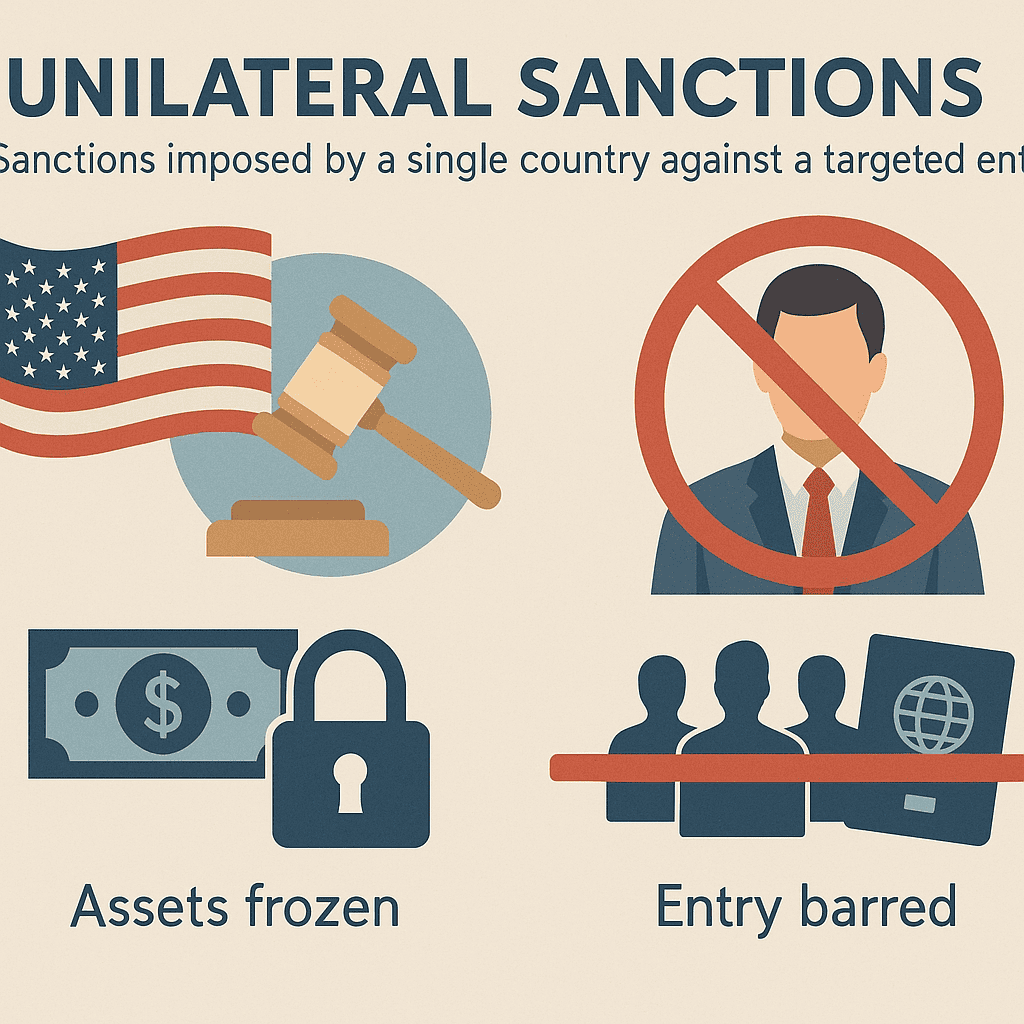#QuickbiteCompliance day 283
🚨 Unilateral Sanctions: The Double-Edged Sword in Fighting Financial Crime
As financial crime fighters, we know unilateral sanctions—imposed by single nations like the U.S., EU, or Australia—are powerful tools to target human rights abusers, corrupt actors, and rogue regimes. But while they signal moral stance, their unilateral nature creates gaps exploited by bad actors. Here’s how:
### ⚖️ Key Mechanisms & Examples
1. Targeted Designations (e.g., Magnitsky Acts):
– Freeze assets and ban visas for human rights violators (e.g., Russian officials linked to Sergei Magnitsky’s death, Saudi operatives in the Khashoggi murder) .
– Loophole: Sanctioned elites use family proxies or shell companies to hold assets (e.g., Russian oligarchs transferring wealth to “neutral” jurisdictions) .
2. Trade Embargoes (e.g., Australia vs. France, 1980s):
– Australia banned uranium exports to protest French nuclear tests .
– Evasion Tactic: Third-party intermediaries reroute goods (e.g., Russian oil shipped via “shadow fleets” to Asia post-2022 sanctions) .
### 💸 How Criminals Exploit Unilateral Gaps
– Layering via Neutral Jurisdictions:
Sanctioned Russian entities use Kazakhstan/Turkey to import dual-use tech (e.g., 18% spike in Kazakh electronics exports to Russia in 2022) .
– Alternative Financial Systems:
China/Russia develop parallel payment networks (e.g., CIPS/SPFS) to bypass dollar reliance .
– Cryptocurrency Obfuscation:
Mixers and privacy coins launder funds (e.g., North Korea’s Lazarus Group using USDT to fund weapons programs) .
– “Overcompliance” Chilling Effect:
Banks freeze all transactions with high-risk regions (e.g., Cuba/Venezuela humanitarian aid blocked due to U.S. secondary sanctions fears) .
### 🛡️ Fighting Back: Smarter Enforcement
– Collaborative Intelligence:
Share data across FIUs (e.g., EU’s 2025 sanctions harmonization directive closing member-state loopholes) .
– Tech-Driven Vigilance:
AI screens cross-border payments for hidden ties (e.g., linking shell companies to sanctioned Politically Exposed Persons (PEPs)).
– Public-Private Alerts:
OFAC’s “Common High Priority Items List” flags evasion-prone goods (e.g., integrated circuits repurposed for Russian missiles) .
> The Bottom Line: Unilateral sanctions lose bite without global coordination. Yet they’re vital to isolate rogue actors—if backed by agile tech and unified enforcement.
🌐 Learn terms like “unilateral sanctions” in the [ACAMS Glossary](https://www.acams.org/en/resources/aml-glossary-of-terms).
#UnilateralSanctions #FinancialCrime #AML #SanctionsCompliance #RiskManagement #InclusiveRegtech #OpenSourceAML #100HariNulis #AntiMoneyLaundering

